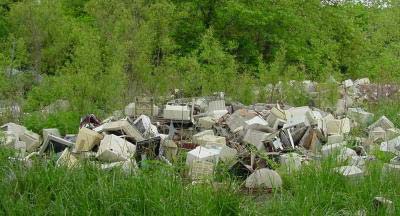Junk Computers Could Fuel Cars

Get the world’s most fascinating discoveries delivered straight to your inbox.
You are now subscribed
Your newsletter sign-up was successful
Want to add more newsletters?

Delivered Daily
Daily Newsletter
Sign up for the latest discoveries, groundbreaking research and fascinating breakthroughs that impact you and the wider world direct to your inbox.

Once a week
Life's Little Mysteries
Feed your curiosity with an exclusive mystery every week, solved with science and delivered direct to your inbox before it's seen anywhere else.

Once a week
How It Works
Sign up to our free science & technology newsletter for your weekly fix of fascinating articles, quick quizzes, amazing images, and more

Delivered daily
Space.com Newsletter
Breaking space news, the latest updates on rocket launches, skywatching events and more!

Once a month
Watch This Space
Sign up to our monthly entertainment newsletter to keep up with all our coverage of the latest sci-fi and space movies, tv shows, games and books.

Once a week
Night Sky This Week
Discover this week's must-see night sky events, moon phases, and stunning astrophotos. Sign up for our skywatching newsletter and explore the universe with us!
Join the club
Get full access to premium articles, exclusive features and a growing list of member rewards.
Potentially toxic computer waste could instead wind up fueling your car one day.
A simple and efficient technique can recycle discarded circuit boards into environmentally friendly raw materials for use in fuel, plastic and other useful consumer products.
As electronics make their way everywhere around the world, heaps of outdated, unwanted devices are piling up in junkyards. This is creating one of the world's biggest environmental headaches.
Computers and other electronics are more hazardous than normal household trash, loaded as they are with toxic materials such as arsenic, mercury and lead or certain flame retardants. In 2005, the United States generated some 2.63 million tons of such garbage, and this amount is only expected to increase — "electronic waste" is the fastest growing part of our waste stream.
Now scientists in Romania and Turkey are seeking ways to remove toxic materials from electronics so these scrap materials can be safely recycled.
The researchers collected printed circuit boards from discarded computers. They employed a special combination of catalysts, high temperatures and chemical filtration to destroy flame-retardant additives in the plastics. This removed nearly all the toxic substances from the scraps, resulting in oils that could be safely used as fuel or raw materials called feedstocks for a wide range of consumer products, the researchers said.
"It is good work," said chemical engineer William Hall at Coventry University in England, who did not participate in this study. "The recycling of scrap printed circuit boards is becoming increasingly important because some of the metals they contain are becoming increasingly scarce."
Get the world’s most fascinating discoveries delivered straight to your inbox.
Hall noted that currently, scrap printed circuit boards can be processed in smelters, and this novel method will have to demonstrate its advantages over smelting if it is to succeed commercially. The benefit of this new technique "is that as well as recovering the metal content of the printed circuit boards, you can also recover the valuable organic chemicals," he told LiveScience.
"The biggest obstacle to development of this technology is the scaling-up of the process," Hall added.
Researcher Cornelia Vasile at the Romanian Academy at Iasi and her colleagues will detail their findings in the May 21 issue of the journal Energy & Fuels. They received funding from the Romanian National Authority for Scientific Research.
- Top 10 Emerging Environmental Technologies
- What's Your Environmental Footprint?
- Invention Turns Toxic Waste into Electricity

 Live Science Plus
Live Science Plus










